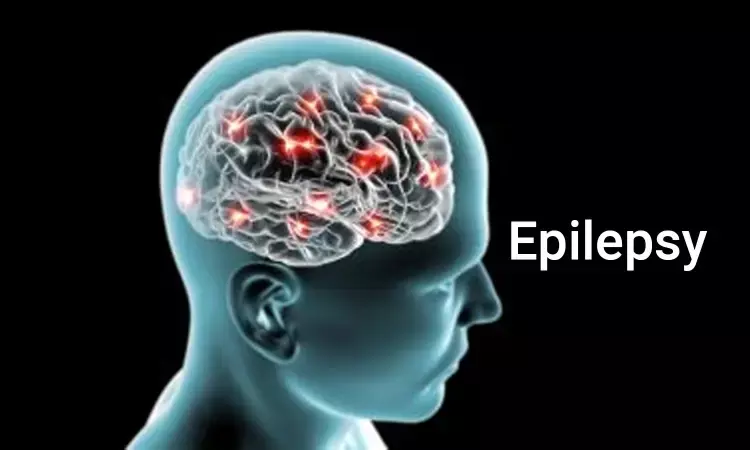- Home
- Medical news & Guidelines
- Anesthesiology
- Cardiology and CTVS
- Critical Care
- Dentistry
- Dermatology
- Diabetes and Endocrinology
- ENT
- Gastroenterology
- Medicine
- Nephrology
- Neurology
- Obstretics-Gynaecology
- Oncology
- Ophthalmology
- Orthopaedics
- Pediatrics-Neonatology
- Psychiatry
- Pulmonology
- Radiology
- Surgery
- Urology
- Laboratory Medicine
- Diet
- Nursing
- Paramedical
- Physiotherapy
- Health news
- Fact Check
- Bone Health Fact Check
- Brain Health Fact Check
- Cancer Related Fact Check
- Child Care Fact Check
- Dental and oral health fact check
- Diabetes and metabolic health fact check
- Diet and Nutrition Fact Check
- Eye and ENT Care Fact Check
- Fitness fact check
- Gut health fact check
- Heart health fact check
- Kidney health fact check
- Medical education fact check
- Men's health fact check
- Respiratory fact check
- Skin and hair care fact check
- Vaccine and Immunization fact check
- Women's health fact check
- AYUSH
- State News
- Andaman and Nicobar Islands
- Andhra Pradesh
- Arunachal Pradesh
- Assam
- Bihar
- Chandigarh
- Chattisgarh
- Dadra and Nagar Haveli
- Daman and Diu
- Delhi
- Goa
- Gujarat
- Haryana
- Himachal Pradesh
- Jammu & Kashmir
- Jharkhand
- Karnataka
- Kerala
- Ladakh
- Lakshadweep
- Madhya Pradesh
- Maharashtra
- Manipur
- Meghalaya
- Mizoram
- Nagaland
- Odisha
- Puducherry
- Punjab
- Rajasthan
- Sikkim
- Tamil Nadu
- Telangana
- Tripura
- Uttar Pradesh
- Uttrakhand
- West Bengal
- Medical Education
- Industry
Responsive neurostimulation system reduces seizures in children as well, finds study

A surgical treatment commonly used to reduce epileptic seizures in adults also is effective and safe for children, according to a Rutgers study.
The study, published in the journal Neurosurgery, is one of the first to investigate responsive neurostimulation system (RNS)—a device similar to a pacemaker that sends electric charges to the heart, which delivers stimulation directly to the brain when needed to prevent seizures—in children.
Up to 40 percent of people who suffer from epileptic seizures do not respond to medication. RNS, which is implanted in the brain and monitors brain waves, detects seizures and unusual electrical activity that can lead to seizures, then delivers small pulses of stimulation to help the brainwaves return to normal. The system, which has not been well studied in children whose brains are still growing, is being increasingly used in pediatric centers to control seizures.
"As we expand use of RNS to children, it is critical to consider how to determine the lower age limit," said lead author Yasunori Nagahama, an assistant professor of neurosurgery and director of pediatric epilepsy surgery at Rutgers Robert Wood Johnson Medical School. "Considering this procedure involves removing a portion of the skull to implant the device, the benefits and potential harm based on the variable skull development in individual patients should be considered. Children experience rapid skull growth within the first two years and reach about 90 percent of adult skull volume by around age 8. In this study, there were two patients under 7 years at the time RNS was implanted, including a 3-year-old, who was the youngest reported patient to undergo RNS implantation."
Researchers looked at 35 children and young adults from age 3 to 25 with drug-resistant epilepsy who were treated with RNS. They found that 84 percent had a reduction in disabling seizures, including 18 percent who had a reduction of more than 90 percent.
"The findings suggest that responsive neurostimulation is an effective off-label surgical treatment of drug-resistant epilepsy in carefully selected pediatric patients," said Nagahama. "However, more research on long-term efficacy and safety is needed to determine which patients will benefit most."
10.1093/neuros/nyab343
Hina Zahid Joined Medical Dialogue in 2017 with a passion to work as a Reporter. She coordinates with various national and international journals and association and covers all the stories related to Medical guidelines, Medical Journals, rare medical surgeries as well as all the updates in the medical field. Email: editorial@medicaldialogues.in. Contact no. 011-43720751
Dr Kamal Kant Kohli-MBBS, DTCD- a chest specialist with more than 30 years of practice and a flair for writing clinical articles, Dr Kamal Kant Kohli joined Medical Dialogues as a Chief Editor of Medical News. Besides writing articles, as an editor, he proofreads and verifies all the medical content published on Medical Dialogues including those coming from journals, studies,medical conferences,guidelines etc. Email: drkohli@medicaldialogues.in. Contact no. 011-43720751


